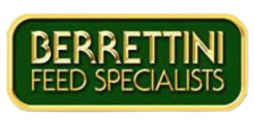 Properly Feeding Thoroughbreds is crucial to their health and performance. Here is a list of specific nutrient requirements for equine athletes:
Properly Feeding Thoroughbreds is crucial to their health and performance. Here is a list of specific nutrient requirements for equine athletes:
Energy
Many Thoroughbreds in training require a significant amount of energy to sustain their intense exercise routines. The primary sources of energy in horse diets are fiber, carbohydrates and fats. How much energy a Thoroughbred will require will depend on their workload and individual metabolism. Dietary energy considerations include:
- Forage. High-quality forage is the foundation of any horse’s diet. The fiber content provides a steady source of energy via conversion into volatile fatty acids in the hindgut.
- Horse Feed. For high-performance athletes, additional energy is required and is often provided in the form of carbohydrates. The amount or percentage needed will depend on the workload of the horse.
- Fat. The incorporation of high-quality fats in the diet, or the feeding of a high fat horse feed, can help increase the energy density of a horse’s ration.
The energy requirements of a recently retired Thoroughbred will generally be higher than a non-OTTB (off track Thoroughbred) of similar age and workload. This is because the high degree of fitness in the recently retired OTTB lends itself to a higher base metabolism. Also, recently retired OTTBs are often young and still growing.
As the Thoroughbred grows into their mature frame and becomes accustomed to their new career, they should be viewed as individuals and fed accordingly. Not all Thoroughbreds remain hard keepers for life, but care should be taken to avoid the post-track “crash” by supplying plenty of good quality forage and a low NSC, high-energy horse feed, like Senior Sport®, during the initial transition off the track.
Protein
Thoroughbreds, like all horses, need protein for muscle development, tissue repair, and overall health. For performing Thoroughbreds, protein is essential to support growth and exercise-related muscle maintenance. Protein considerations include:
- Forage. High-quality forages generally contain sufficient protein, but are lacking in essential amino acids.
- Horse Feed. Limiting essential amino acids can be supplied by well-fortified horse feeds.
- Amino Acids. Additional amino acids may be warranted in the diet, particularly during the initial transition to a sport horse career, to aid in the development of topline muscles. Adding a ration balancer, like Essential K®, on top of a horse feed helps support the change in musculature that occurs during the transition to a new career.
Vitamins and Minerals
Thoroughbreds, like all horses, require a balanced intake of vitamins and minerals for various metabolic functions, including bone health, immunity, and energy production. Vitamin and mineral considerations include:
Fiber
First, fiber is a critical nutrient for not only maintaining gut health, but also as a source of energy. Fiber is fermented in the hindgut and considerations should include:
- Forage. High-quality forage is the foundation of any horse’s diet. This is especially true of Thoroughbreds who need high quality forage to maintain digestive health and body condition.
- Slow or frequent feeding. The use of hay nets, feeding forage often, or free choice hay, is a good way to have a constant trickle of forage (fiber) going in to the horse’s digestive tract.
Fat
Dietary fat is an excellent source of energy for any horse. It can also help improve stamina and performance, depending on the activity taken. Fat considerations include:
- Horse Feed. Quality horse feeds today have higher amounts of fat than the past. Be sure to check the feed tag for the percent fat being fed.
- Oils. The addition of quality oils, like Wholesome Blends® Omega Plus, contain higher levels of omega 3 fatty acids. Fats higher in omega 3’s help with reducing inflammation and help with exercise recovery.
Take Home Message
Thoroughbreds have distinct nutritional requirements driven by their high energy demands, lean body composition and intense exercise regimes. You need to ensure you are properly meeting their nutrient requirements to support their health, performance, and long-term health. It is highly advisable for any owner of a Thoroughbred to speak with an equine nutritionist or specialist to create an individual feeding plan to meet their unique needs. Please reach out to our team of equine nutrition specialists for a free consultation anytime!
Article By: Chris Mortensen, Ph.D. | Courtesy of Tribute Equine Nutrition
